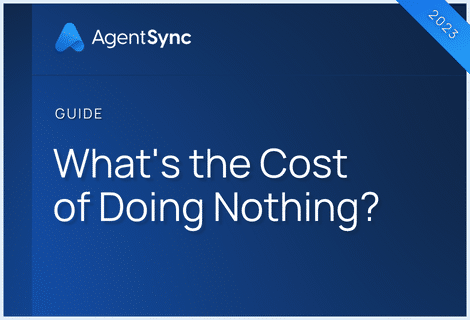

If you’ve got Georgia on your mind – particularly the Georgia insurance continuing education (CE) requirements – you’ve come to the right place.
In Georgia, like in most states, your resident license is contingent on your CE, and any nonresident licenses you hold are contingent on your resident license. So, keep your Georgia resident license in good standing and you’ll be peachy keen.
Before we dive in, let me take a hot second to remind you that, while we hope to be pithy and informative in these blogs, you’re responsible for validating any information and doing your due diligence to follow the compliance requirements of your own jurisdiction.
How many hours of CE are required for Georgia insurance producers?
Generally, insurance producers and adjusters in Georgia have to complete 24 hours of CE in each biennial cycle, with three hours being specifically in ethics-approved courses. The remaining hours must be related to the agent’s license.
Experience counts in Georgia, and if you’ve held a resident license for 20 years or more, your total number of CE hours per two-year cycle drops to 20 hours, again with three being specifically in ethics and the others relating to your license. If you have one of the designations mentioned in the final section, you only have to complete SIX hours of CE to meet Georgia’s requirement (again, three of those hours must be in ethics).
There are a few more state-specific requirements, such as:
- Workers compensation adjusters: If you’re a worker’s compensation adjuster with a Georgia resident insurance license, you must complete 20 hours of approved CE through the State Workers’ Compensation Board or complete normal property and casualty CE requirements.
- Credit agents and subagents: You must provide proof to the state commissioner that you completed 10 hours of self-study or CE over the last two years, with no ethics requirement.
- Flood insurance: You’re required to take a one-time course of three hours in accordance with the National Flood Insurance Program requirements. In Georgia, this does count toward agent annual CE and can be used to satisfy the ethics requirement for that year.
- Annuities sales: If you have a life insurance license and plan to sell annuities, you can’t sell, solicit, or negotiate anything that walks or quacks like an annuity until you’ve taken Georgia’s required one-time, four-hour training.
- Long-term care insurance (LTCI): To sell LTCI, you have to be licensed in Georgia, appointed by a Georgia carrier, and have taken eight hours of LTCI-specific training. Every biennial renewal period, you must take four hours of training to cover product knowledge, laws, rules, and regulations.
There are several other considerations for what counts in Georgia’s CE. You can’t repeat a CE course in any given renewal period, but you can roll over CE from one period to the next as long as it isn’t more than 50 percent of your biennial requirement.
Double dipping: Many courses you take toward earning further designations count for CE, such as those you can get at the College for Financial Planning. Georgia also has guidelines for counting college courses for CE. Generally, when it comes to counting CE, Georgia has a pretty comprehensive statement to use as a guide:
“The overriding consideration in determining whether a specific program or course qualifies as acceptable continuing education is that it be a formal program of learning which contributes directly to the professional or technical competence of a licensed individual. Sales, motivational, self-improvement, telephone techniques, office techniques (except to the extent of improving service to the public when combined with other eligible instruction), election of officers, installation of officers, attendance at conventions and other similar activities, programs, or courses will not be approved.”
What is the due date for Georgia Insurance CE Credits?
Your CE requirement has the same due date as your license renewal – you must submit them by the last day of your birth month every other year based on the year your license was first issued.
The state of Georgia will send a reminder of the insurance CE due dates 90 days prior to your date of expiration. Ain’t that sweet?
Who’s exempt from Georgia Insurance CE?
Georgia recognizes other states’ CE as reciprocal. Put another way, if you have a nonresident license for Georgia, as long as you are up-to-date with your home state’s insurance CE requirements, you’re in good standing in Georgia, as well.
“Doctor No” (CE Requirements): Those who hold a PhD in insurance are completely exempt from the CE requirements in Georgia, although they must request that exemption.
Certain limited lines agents are exempt from CE requirements:
- Agents with only travel ticket or travel accident classes
- Temporary agents
- Foreign military representatives
- Fraternal agents
- Title
- Nonresident adjusters where Georgia is the designated home state
- Nonresident crop/hail adjuster where Georgia is the designated home state
- Nonresident public adjusters where Georgia is the designated home state
- Nonresident workers’ compensation adjusters where Georgia is the designated home state
Residents who have held a license for more than 20 years get a little bit of a break on their renewal hours, as do those who are involved in legislative, journalistic, or teaching projects that focus on insurance or illness (see if your project qualifies by filing an exemption), and those who hold certain designations (see the above for clarification):
- Fellow, Life Management Institute
- Certified Insurance Counselor
- Chartered Property Casualty Underwriter
- Chartered Life Underwriter
- Certified Employee Benefits Specialist
- Chartered Financial Consultant
- Certified Financial Professional
- Accredited Adviser in Insurance
You’re fully exempt from Georgia insurance adjuster CE if you’re an adjuster with a current Universal Claims Certification designation.
If you hold a nonactive license – meaning you’re a Georgia resident license holder, but you aren’t writing business for a period of time for some reason – you aren’t required to stay current on your CE, either, although you will still need to pay license renewal fees. Once your license becomes active again, your CE requirements will be reinstated as well.
Since Georgia is a member of the NAIC Continuing Education Reciprocity agreement, most courses you can access through national providers will count toward CE even if they aren’t Georgia-specific.
For more information about state-specific licensing requirements, or to find out how AgentSync can make it easier to operate across multiple states, check out our state pages.
Georgia Insurance CE FAQs
How do I renew my expired Georgia insurance license?
After your expiration, you still have 15 days to pay your license and renew with a late fee (assuming you have completed your CE). Otherwise, your license will expire. You can still reinstate your license by getting current on your CE and paying your renewal fee plus late fees within a year of expiration.
Will I need to resubmit fingerprints for license renewal?
If you renew on time or within six months of your license expiration date, no. After that six-month period, though, you will need to resubmit your fingerprints.

